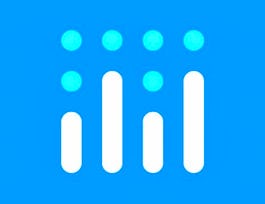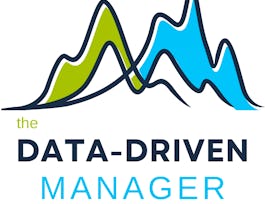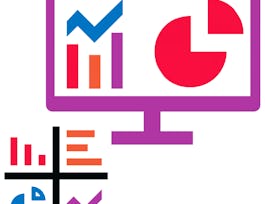Data visualization is a crucial skill in the realm of data analysis, and this course is designed to elevate your proficiency with Stata, a powerful statistical software. Beginning with an introduction to continuous and discrete data, the course progresses through a series of detailed modules, each focusing on specific types of plots. You’ll explore the nuances of creating and interpreting histograms, density plots, and scatter plots, among others, while understanding how each visualization technique can be leveraged to convey data insights effectively.



Data Visualization in Stata

Instructor: Packt - Course Instructors
Sponsored by Coursera for Reliance Family
Recommended experience
Recommended experience
What you'll learn
Create various plots in Stata to visualize data effectively
Interpret data visualizations to extract meaningful insights
Analyze different types of data to determine the most suitable visualization method
Evaluate the effectiveness of various plots in communicating data insights
Details to know

Add to your LinkedIn profile
3 assignments
October 2024
See how employees at top companies are mastering in-demand skills


Earn a career certificate
Add this credential to your LinkedIn profile, resume, or CV
Share it on social media and in your performance review

There are 6 modules in this course
In this module, we will introduce you to the course, outlining the main topics and goals. You'll gain insight into the structure of the course and how the content will be delivered, setting the stage for a successful learning experience.
What's included
1 video1 reading
In this module, we will explore a wide array of graph types used to represent single continuous variables. From histograms and density plots to more specialized visualizations like ridgeline and rootogram plots, you'll learn how to construct, interpret, and apply these tools using Stata, enabling you to effectively visualize and analyze continuous data.
What's included
29 videos
In this module, we will focus on the visualization of single discrete variables using various plots. You'll learn about bar graphs, pie charts, dot charts, and radar plots, as well as how to create and customize these visualizations in Stata, enhancing your ability to present discrete data clearly and effectively.
What's included
9 videos1 assignment
In this module, we will delve into the visualization of relationships between two continuous variables. You'll explore various plots such as scatter plots, heat plots, hex plots, and more specialized visualizations like sunflower and rainbow plots. Through hands-on use of Stata, you'll learn to create, customize, and interpret these plots, gaining insights into data correlations and trends.
What's included
21 videos
In this module, we will focus on visualizing relationships between two discrete variables using various plots. You'll learn about jitter plots, table plots, balloon plots, and more, along with how to construct and interpret them using Stata. This module will equip you with the skills to effectively represent and analyze categorical data relationships.
What's included
10 videos
In this module, we will explore advanced plotting techniques for visualizing three or more variables. You'll learn about contour plots and bubble plots, gaining hands-on experience with creating and interpreting these visualizations using Stata. This module will help you master the representation of complex, multi-dimensional data.
What's included
4 videos2 assignments
Instructor

Offered by
Why people choose Coursera for their career




Recommended if you're interested in Data Science


Coursera Project Network


University of Colorado Boulder

Open new doors with Coursera Plus
Unlimited access to 10,000+ world-class courses, hands-on projects, and job-ready certificate programs - all included in your subscription
Advance your career with an online degree
Earn a degree from world-class universities - 100% online
Join over 3,400 global companies that choose Coursera for Business
Upskill your employees to excel in the digital economy







